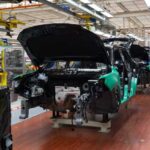The automotive industry has always been at the forefront of technological innovation. From the invention of the first gasoline-powered car by Karl Benz in the years 1879 and 1913 to mass production techniques introduced by Henry Ford, the industry has consistently pushed the boundaries of what is possible. However, in recent years, a new wave of innovation has been sweeping through the automotive sector, one that is fundamentally changing the way automakers and dealerships interact with their customers. This revolution is driven by digital transformation.
Digital transformation in the automotive industry is not just about producing more advanced vehicles; it’s about redefining the entire customer experience, from when a potential buyer starts researching a new car to the ongoing relationship between the customer and the automaker. In this article, we will explore how digital transformation is reshaping the automotive industry and enhancing the customer experience.
Virtual Showrooms and Online Shopping
One of the most noticeable digital transformation changes is the rise of virtual showrooms and online car shopping. Customers can now explore various vehicle options, compare features, and even take virtual test drives from the comfort of their homes. This not only provides convenience but also allows customers to make more informed decisions. Companies like Tesla and Carvana have spearheaded this trend, and traditional automakers are following suit.
Customization and Personalization
Digital technologies enable automakers to offer highly personalized experiences to their customers. With online configurators and augmented reality tools, customers can design their dream cars, choosing everything from the colour and interior materials to advanced tech features. This level of customization fosters a deeper emotional connection between the customer and the brand.
AI-Powered Customer Service
Artificial intelligence (AI) is transforming customer service in the automotive industry. Chatbots and virtual assistants respond instantly to customer inquiries, schedule service appointments, and troubleshoot typical vehicle issues. This not only enhances the customer experience but also reduces the workload on human customer service agents.
Connected Cars
The Internet of Things (IoT) has given rise to the concept of connected cars. These vehicles are equipped with sensors and communication technologies that enable real-time data exchange between the car and the manufacturer. Automakers can proactively identify maintenance issues, provide over-the-air software updates, and even offer new features to existing customers. This not only improves the driving experience but also strengthens customer loyalty.
Predictive Analytics
Automakers use data analytics to gain insights into customer behaviour and preferences. By analyzing data from connected cars, online interactions, and service records, companies can anticipate customer needs and offer personalized recommendations. This allows for targeted marketing and more effective product development.
Enhanced Safety and Convenience
Digital transformation makes driving safer and more convenient. Advanced driver assistance systems (ADAS) and autonomous driving technologies are reducing accidents and making commuting less stressful. Features like adaptive cruise control and self-parking are becoming standard, further improving the customer experience.
E-commerce and Subscription Models
Some automakers are experimenting with e-commerce platforms and subscription models that offer customers flexible vehicle access without traditional ownership. This appeals to consumers who prioritize convenience and variety over long-term commitments.
Sustainability and Environmental Awareness
The digital transformation has also heightened environmental awareness in the automotive industry. Electric vehicles (EVs) are becoming more accessible, and automakers use digital channels to promote sustainability efforts. Customers increasingly seek eco-friendly options, and automakers are responding with innovative solutions.
Online Reviews and Social Media
In the age of digital transformation, online reviews and social media play a significant role in shaping the customer experience. Potential buyers often rely on the opinions and experiences of other customers to make their decisions. This has put pressure on automakers to deliver exceptional products and services consistently.
In conclusion, digital transformation has revolutionized the customer experience in the automotive industry. From virtual showrooms to connected cars and personalized services, customers today have access to a level of convenience, customization, and safety unimaginable just a few years ago. As technology evolves, the automotive industry will likely see even more innovative changes in the years ahead. Companies that can adapt to these changes and prioritize customer-centric digital solutions will be well-positioned for success in this new era of automotive excellence.




